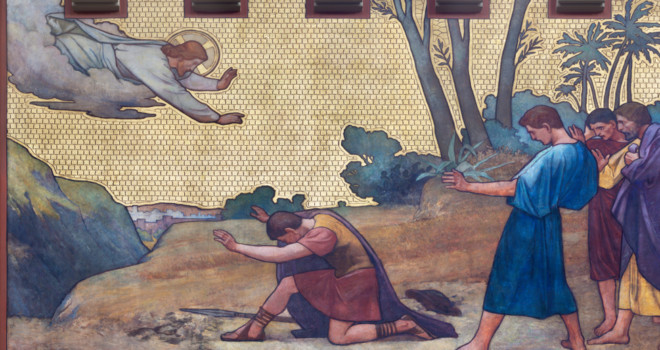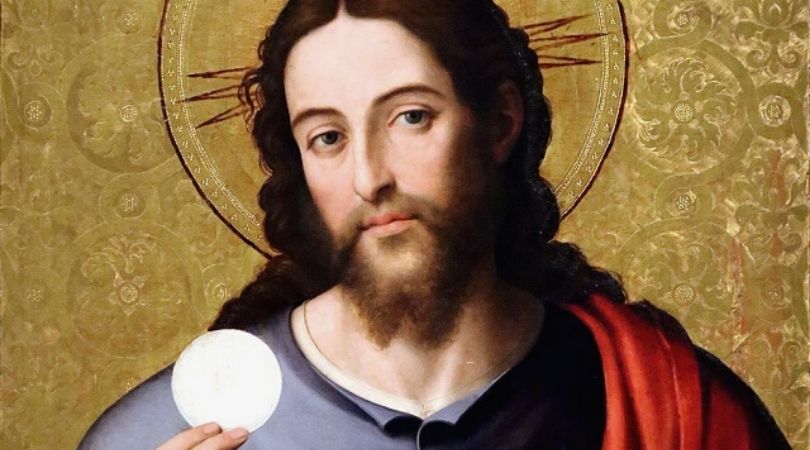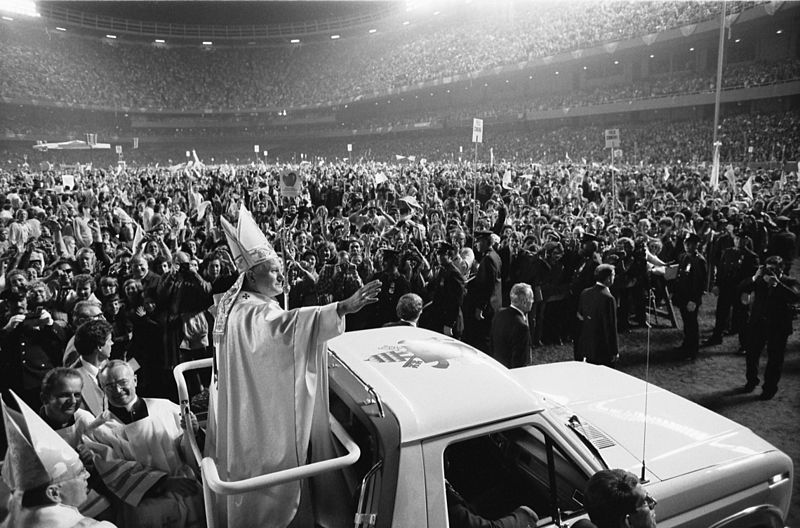Dr. Michael Brown: New York Reveals Its Blood Lust for Baby Killing
January 26, 2019Christine Rousselle: Covington Bishop Apologizes to Covington Catholic Students
January 26, 2019
By Matthew Chicoine, Catholic Exchange, January 25, 2019
According to Romans 8:28, “We know that all things work for good for those who love God, who are called according to his purpose.” It is no coincidence that the Feast of the Conversion of St. Paul, traditionally occurs a week after the Feast of the Chair of St. Peter. Throughout Church history the reformed murderer and the simple fisherman frequently are portrayed in art and sacred liturgy together as exemplars for Christians to follow.
In fact, Peter and Paul share a feast day together on June 29th. The celebration of Paul’s conversion marks the conclusion of the Octave (Week) of Prayer for Christian Unity — a feast of international Christian ecumenical observance that began in 1908.
While celebrating a saint as legendary as the Apostle of the Gentiles may appear out of touch with the ordinary lay person, that cannot be further from the truth. Recalling the great witness of conversion of Saul to Paul provides great hope and a remedy for the division that the Enemy sows in this world.
Conversion — Call for All
The Catechism of the Catholic Church refers to the Sacrament of Confession as the sacrament of conversion because “It is called the sacrament of conversion because it makes sacramentally present Jesus’ call to conversion, the first step in returning to the Father from whom one has strayed by sin,” (CCC 1423).
No matter the stage, circumstance, or mindset a person is at in life transformation is possible. St. John Paul the Great talked about conversion in Dives In Misericordia, “Conversion is the most concrete expression of the working of love and of the presence of mercy in the human world” (no. 6).
The colloquial phrase ‘knocked off your high horse’ certainly calls to mind strong image of Saul falling off (perhaps a horse!) after witnessing a blinding light in Acts 22:6-7. Vatican II reminded the world that all the faithful are called to holiness. The Council Fathers put it this way in Lumen Gentium,
“Fortified by so many and such powerful means of salvation, all the faithful, whatever their condition or state, are called by the Lord, each in his own way, to that perfect holiness whereby the Father Himself is perfect.”
Despite our failures, the first step in our relationship with God is conversion. St. Paul is a perfect example that shows that even the worst sinners can convert.
Growing Pains
Along with that initial conversion, Saul encountered a brief period of blindness. Acts 22:11 details that Saul had to be led by hand to the city of Damascus by his traveling partners.
While I have never experienced blindness myself and cannot speak about any physical pain involved, I can provide experience as a newbie or novice in a work situation or as a new parent where it felt like I had to have my ‘hands held’ until I could grasp a better understanding of my situation. As the premier Jewish leader in rounding up the ‘blasphemous’ early followers of Christ, Saul probably heard frequent praise and had a strong ego. Lowering or limiting oneself to relying on others may not be physically painful, but it definitely hurts the ego!
True growth cannot happen without at least some painful transformation. The Catholic Church teaches that while conversion is a good first step in order for effective change to take place, penance needs to occur. According to the Catechism,
Conversion is accomplished in daily life by gestures of reconciliation, concern for the poor, the exercise and defense of justice and right, by the admission of faults to one’s brethren, fraternal correction, revision of life, examination of conscience, spiritual direction, acceptance of suffering, endurance of persecution for the sake of righteousness. Taking up one’s cross each day and following Jesus is the surest way of penace.(CCC 1430).
Hope for Humanity
Recent news coverage of the Covington High School students and activists, along with the deeply disturbing legalization of abortion during all three trimesters in the state of New York, provide ample opportunities for despair to seep into our lives. The Enemy’s most sinister weapon to prevent a relationship with Jesus Christ is the vice of despair.
What is the antidote to such a spiritual attack? St. Paul provides the answer in 2 Corinthians 1:10—hope in Jesus Christ. The saint writes, “He rescued us from such great danger of death, and he will continue to rescue us; in him we have put our hope [that] he will also rescue us again” Hope dispels despair.
Whatever trial or tribulation hits you, large or small, the Feast of the Conversion of St. Paul is a great reminder that hope exists even in the seemingly impossible situations. As a killer of Christians, and even of St. Stephen, Paul’s story of transformation reminds us all that good can still come out of the most sinister of events. Hope exists for humanity and I am grateful for this feast as an opportunity to ponder the infinite mercy of God!
© Copyright 2019 Catholic Exchange. All rights reserved.







